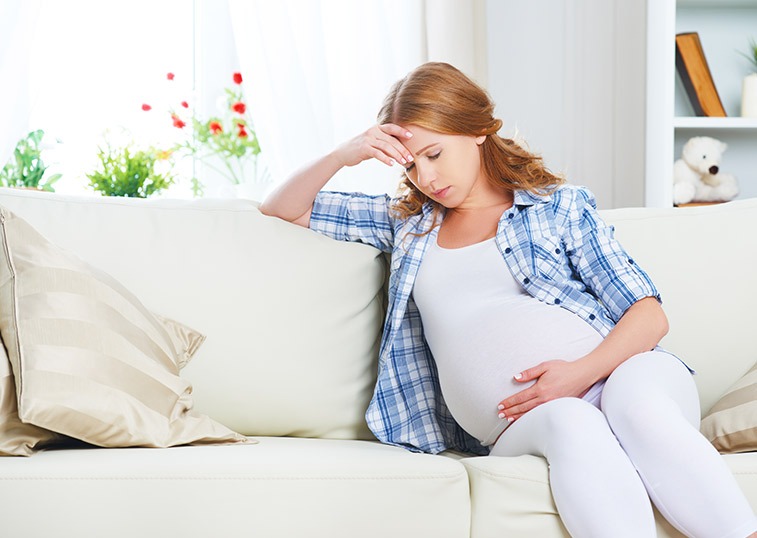Introduction
In today’s fast-paced world, stress has become a constant part of many women’s lives. Whether it’s caused by work pressure, family responsibilities, financial struggles, or emotional challenges, chronic stress can take a serious toll on the body — particularly on reproductive health. Understanding how stress affects hormonal balance, menstrual cycles, and fertility can help women take proactive steps to protect their overall well-being.
The Link Between Stress and the Reproductive System
The female reproductive system is highly sensitive to hormonal changes. When you experience stress, your body releases cortisol and adrenaline, hormones designed to help you cope with immediate threats. However, when stress becomes chronic, these hormones interfere with the delicate balance of estrogen, progesterone, and other reproductive hormones.
This hormonal imbalance can lead to:
- Irregular menstrual cycles
- Difficulty conceiving
- Reduced libido
- Worsened premenstrual syndrome (PMS)
- Exacerbated menopausal symptoms
How the Stress Response Impacts Hormones
1. The Role of the Hypothalamus
The hypothalamus, located in the brain, regulates both stress and reproductive hormones. When stress is high, it signals the pituitary gland to release stress hormones instead of reproductive hormones. This suppression can disrupt ovulation and menstrual regularity.
2. Cortisol and Reproductive Hormones
Excess cortisol levels interfere with the production of gonadotropin-releasing hormone (GnRH), which is essential for releasing eggs during ovulation. As a result, women under chronic stress may experience missed or irregular periods.
3. Impact on Estrogen and Progesterone
Stress can lower estrogen and progesterone levels, leading to:
- Hot flashes and mood swings
- Vaginal dryness
- Fertility challenges
- Difficulty maintaining pregnancy in some cases
Common Reproductive Issues Linked to Stress
1. Irregular or Missed Periods
Chronic stress can cause amenorrhea (absence of menstruation) or oligomenorrhea (infrequent periods). The body essentially “shuts down” non-essential functions like reproduction to conserve energy.
2. Infertility and Ovulation Disorders
Stress affects ovulation by altering the release of reproductive hormones. Women may not release an egg each cycle, reducing the chance of conception. In couples facing infertility, managing stress can significantly improve treatment outcomes.
3. Polycystic Ovary Syndrome (PCOS)
While PCOS has genetic and metabolic causes, stress can worsen its symptoms by elevating cortisol levels and promoting weight gain, insulin resistance, and hormonal imbalance.
4. Premenstrual Syndrome (PMS) and PMDD
Stress amplifies PMS symptoms such as mood swings, cramps, and fatigue. In severe cases, it can contribute to Premenstrual Dysphoric Disorder (PMDD) — a more intense form of PMS linked to mood disorders.
5. Menopause Symptoms
For menopausal women, stress can make symptoms like hot flashes, insomnia, and irritability more severe by disrupting hormonal regulation and increasing cortisol production.
The Mind-Body Connection: How Mental Health Affects Fertility
Emotional health directly influences reproductive hormones. Anxiety, depression, and chronic tension can affect the brain’s signaling to the ovaries. Studies have shown that stress-reduction therapies — including mindfulness, yoga, and cognitive behavioral therapy (CBT) — can improve fertility rates and menstrual regularity.
How Stress Affects Pregnancy
During pregnancy, prolonged stress may:
- Increase the risk of preterm birth
- Contribute to low birth weight
- Affect fetal brain development
- Cause hormonal fluctuations that impact milk production postpartum
Managing stress through relaxation techniques, adequate rest, and emotional support is essential for a healthy pregnancy and postpartum recovery.
Coping Strategies: How to Manage Stress for Better Reproductive Health
1. Regular Exercise
Physical activity helps reduce cortisol levels, improve mood, and enhance blood flow to reproductive organs. Low-impact exercises like walking, yoga, and swimming are particularly beneficial.
2. Mindfulness and Meditation
Practicing mindfulness reduces anxiety and helps regulate emotional responses. Just 10–15 minutes of daily meditation can balance the nervous system and promote hormonal stability.
3. Balanced Nutrition
Eat foods rich in:
- Omega-3 fatty acids (salmon, walnuts) to reduce inflammation
- Vitamin B complex to support stress management
- Magnesium and zinc to regulate hormones
Avoid excessive caffeine, alcohol, and processed foods, which can elevate cortisol levels.
4. Prioritize Sleep
Sleep is vital for hormone regulation. Aim for 7–8 hours of restful sleep each night to allow your body to reset cortisol levels and maintain hormonal balance.
5. Seek Emotional Support
Talking to friends, family, or a therapist can help manage stress and prevent emotional burnout. Support groups for fertility or hormonal health can also provide comfort and shared understanding.
6. Limit Digital Overload
Constant exposure to screens and social media can heighten anxiety and stress. Taking digital breaks can significantly improve mental clarity and reproductive health.
When to Seek Medical Help
If you experience persistent menstrual irregularities, infertility, or other reproductive concerns linked to stress, consult a gynecologist or endocrinologist. They may recommend:
- Hormone tests
- Stress management therapy
- Lifestyle interventions
- Fertility evaluations (if applicable)
Professional guidance ensures you receive the right support to restore balance naturally or with medical assistance.
The Long-Term Impact of Managing Stress
Adopting stress management techniques not only improves reproductive health but also enhances:
- Heart health
- Immunity
- Digestive health
- Sleep quality
- Mental clarity
Ultimately, a balanced mind supports a balanced body — and both are vital for reproductive wellness.
Conclusion
Stress is an inevitable part of modern life, but chronic emotional strain can profoundly impact women’s reproductive health. From irregular periods to fertility issues, the effects of stress are far-reaching yet manageable. By prioritizing self-care, practicing relaxation, maintaining a healthy lifestyle, and seeking medical advice when needed, women can protect their hormonal health and support a strong, healthy reproductive system.
FAQs
1. Can stress stop my period completely?
Yes. Severe or chronic stress can disrupt hormone production, leading to missed or absent periods (amenorrhea).
2. Does stress affect fertility in women?
Yes. High stress levels can interfere with ovulation, reduce libido, and make conception more difficult.
3. How can I tell if stress is affecting my hormones?
Symptoms include irregular cycles, mood swings, fatigue, and changes in weight or sleep patterns.
4. What’s the best exercise for stress-related hormonal imbalance?
Yoga, walking, and low-impact workouts are ideal. They reduce cortisol while improving circulation and mood.
5. How long does it take to balance hormones after reducing stress?
It varies by individual, but noticeable improvements often occur within a few weeks of consistent stress management and lifestyle changes.





